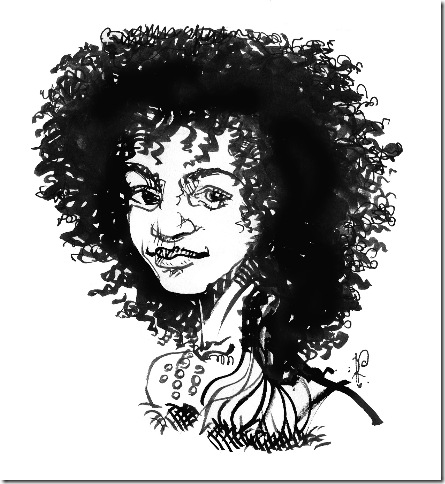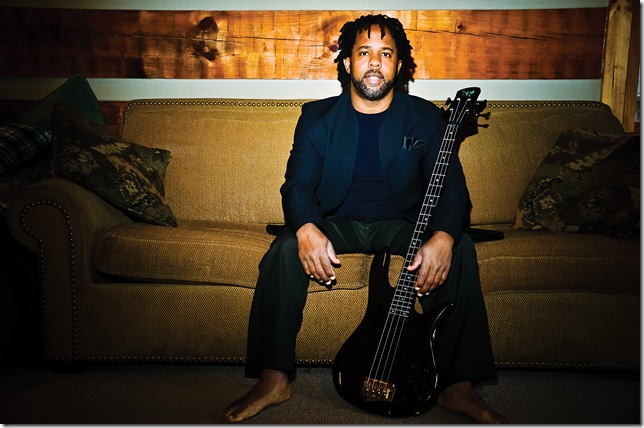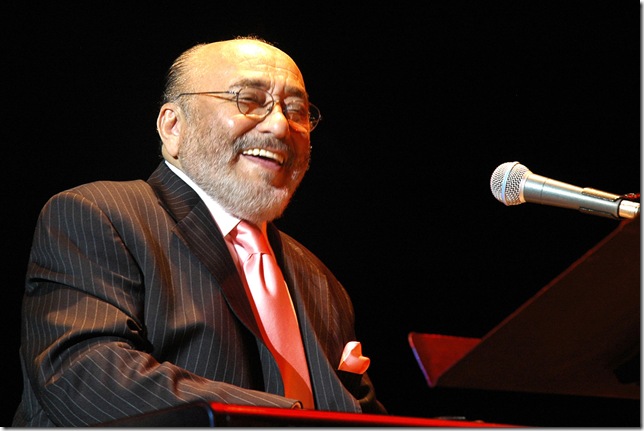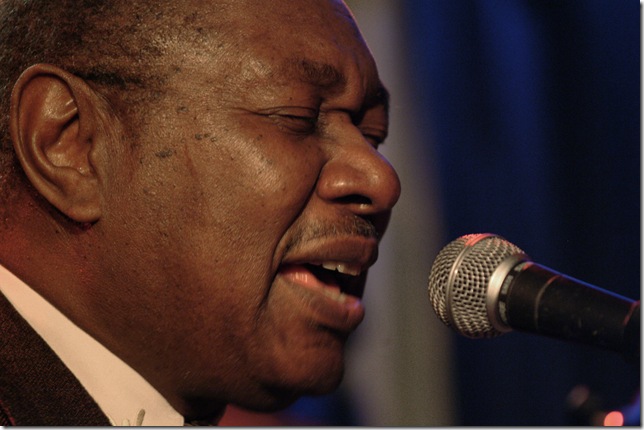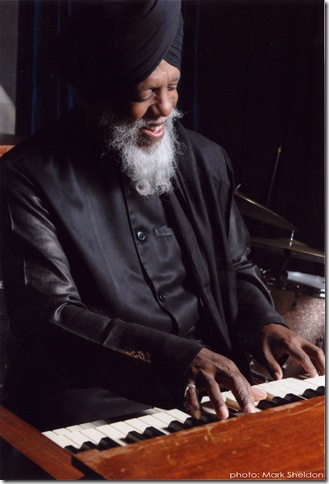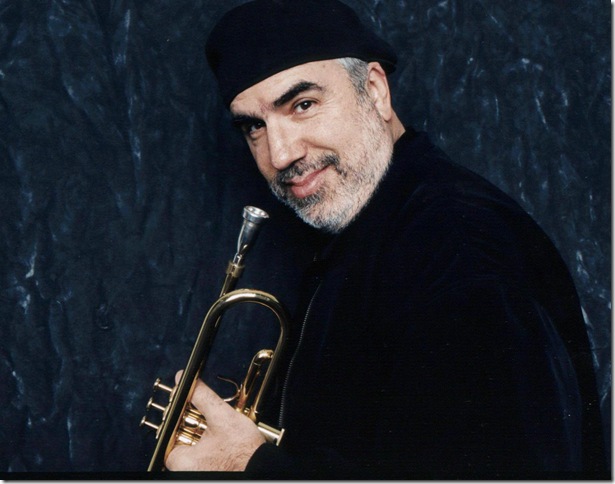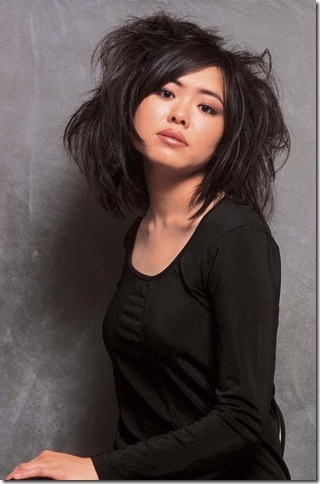The biggest news regarding the 2012-2013 South Florida jazz concert season may also be the most unfortunate.
The 13-year-old, West Palm Beach-based Jazz Arts Music Society (JAMS), which presented a series of annual concerts at the Himmel Theater at CityPlace in West Palm Beach that were fixtures within these previews, decided in late July to suspend the series until further notice.
Citing “lack of available resources and community support,” JAMS founder Susan Merritt announced in a press release that the break was needed to reassess the viability of continued operations, although the society maintains its non-profit status and corporate entity. “Over the years, the membership has declined and attendance has decreased,” she wrote. “Donations and sponsorships have diminished, in spite of the incredible talent JAMS has brought to this community.”
Hopefully the organization will rebound, but in the meantime, the Arts Garage in Delray Beach is presenting some great shows to pick up the Palm Beach County slack in its second year. Add in the usual slate of appearances from Miami to the West Palm Beach-based Kravis Center, and the season looks surprisingly strong despite that loss.
Jaco Pastorius set the electric jazz bass bar frighteningly high, first by ripping out his instrument’s frets, then opening his eponymous 1976 debut album with a mind-boggling solo fretless version of Charlie Parker’s Donna Lee. Bassists have been trying to measure up ever since Pastorius died in 1987, and one of the few to come close is Victor Wooten.
Part of a talented musical family in Virginia, he was taught to play the instrument by guitar-playing brother Regi Wooten, who now often appears as part of Victor’s band. The bassist and drumming brother Roy “Futureman” Wooten then formed half of Bela Fleck and the Flecktones, the genre-blurring fusion of jazz, bluegrass and beyond that made its recording debut in 1990. Wooten’s advanced arsenal of slapped, tapped and finger-picked lines has continued in his solo career on releases from his 1996 debut A Show of Hands through two brand-new efforts, Words and Tones (with various female vocalists) and Sword and Stone (featuring instrumental arrangements of the same songs). See Victor Wooten on Friday (Oct. 5) at the Culture Room in Fort Lauderdale (8 p.m., $25).
Sixty-six-year-old saxophonist Dave Liebman has a staggering career roster of musicians he’s played with, and many came through channels not related to his tenure in Miles Davis’ band from 1970-1974. “Lieb” was actually part of drumming great Elvin Jones’ group before joining Davis for worldwide touring and recording on the fusion epics On the Corner, Dark Magus and Get Up With It. Adept at tenor and soprano saxophone and flute, the Brooklyn native has since worked with other iconic figures such as Chick Corea, McCoy Tyner and John McLaughlin as well as leading his own groups, which include his self-titled 18-piece big band and quartet (with guitarist Vic Juris, bassist Tony Marino and drummer Marko Marcinko). Also the author of the book What It Is: The Life of a Jazz Artist, Liebman’s recent accolades include winning the 2011 and 2011/2012 polls as Best Soprano Saxophonist in DownBeat and JazzTimes magazines, respectively, and being named a National Endowment for the Arts Jazz Master in 2011. See Dave Liebman on Oct. 9 at the University of Miami’s Gusman Concert Hall (8 p.m., $20-50).
At only 37 years old, pianist Jason Moran already has the inimitable playing style and deep resume of an elder jazz statesman. Which makes sense, since the Houston native was set to quit his childhood piano lessons until he heard the singular playing of Thelonious Monk, and because he’s always been influenced by a wider world of the arts than just his musical predecessors. Since starting his solo recording career in 1999, the Manhattan School of Music-trained Moran has written material that was inspired by non-jazz entities from classical composer Maurice Ravel to visual artist Jean-Michel Basquiat. Monk’s influence appeared through In My Mind, Moran’s 2007 multimedia performance (also made into a documentary film) investigating Monk’s 1959 live album, Monk at Town Hall. The artistic adviser for jazz at the Kennedy Center in Washington, D.C., Moran celebrated the 10th anniversary of his trio The Bandwagon (with bassist Tarus Mateen and drummer Nasheet Waits) on his latest release, the 2010 CD Ten. Jason Moran and The Bandwagon perform Oct. 24 at Gusman Hall (8 p.m., $20-50).
Miami trumpeter Melton Mustafa has developed a deservedly iconic reputation within South Florida jazz, yet more as a performer and educator than recording artist. So the CD release party for his fourth solo album, Travelin’ Man, qualifies as a rarity. A 1965 Miami Northwestern High School grad and a University of Miami alum circa 2000, Mustafa has worked with big bands named for Duke Ellington, Count Basie, Charles Mingus, Woody Herman, and Jaco Pastorius. His previous releases include Boiling Point (also featuring organist Dr. Lonnie Smith), St. Louis Blues (with fellow trumpeter Ira Sullivan) and Scenes From Miami Vol. 1 (with drummer Duffy Jackson). As director of jazz studies at Florida Memorial University in Miami, the gifted educator was honored with the establishment of the Melton Mustafa Jazz Festival as he joined the faculty in 1996. It celebrates its 17th anniversary in February. All of this as he also fights to raise funds for aggressive treatments (and their required larger insurance co-payments) to battle a rare form of cancer. Melton Mustafa performs Oct. 26 at the Arts Garage in Delray Beach (7:30 p.m., $25-35).
Guitarist Randy Bernsen blurs the distinctions between international and local performing artist. The long-time Fort Lauderdale resident has enjoyed long-standing Broward County gigs at establishments like Tavern 213 and his current haunt, the Grateful Palate. Yet he also released 1980s major-label solo efforts like Music for Planets, People and Washing Machines and Mo’ Wasabi, which collectively featured Jaco Pastorius, Herbie Hancock, Michael Brecker, Wayne Shorter, and Peter Erskine. Bernsen also replaced Scott Henderson in keyboardist Joe Zawinul’s post-Weather Report band The Zawinul Syndicate, touring the world and appearing on the 1992 CD Lost Tribes. The guitarist still travels the world as both a commercial pilot and touring musician, whether under his name or as part of the memorial Jaco Pastorius Big Band. Bernsen even blurs instrumental distinctions, sometimes employing guitar synthesizer to mimic horns, keyboards or steel drums. The latest evidence is his new APPteaser EP, with Israeli brothers Uzi Nizri (keyboards) and David Nizri (drums). See Randy Bernsen on Oct. 27 at the Arts Garage (8 p.m., $25-35).
The parents of future Latin jazz icon Eddie Palmieri moved from Puerto Rico to New York City in 1926, and the now-75-year-old pianist was born in musically vibrant Spanish Harlem 10 year later. Influenced by his older brother, the late pianist and bandleader Charlie Palmieri, the younger sibling started out playing the timbales, which helps to explain the percussive piano style that has since earned him nine Grammy Awards. His first such accolade, for the album The Sun of Latin Music in 1975, marked the first time the National Academy of Recording Arts and Sciences had recognized Latin music. The trailblazing artist has continued to fuse salsa, funk, Latin jazz and R&B on other Grammy-winning efforts like Unfinished Masterpiece (1975), Palo Pa Rumba (1984), and Listen Here! (2005). You’ll rarely see Palmieri without a smile, and it’s no act — his ebullient personality is as infectious as the singular brand of jazz he’s created. See the Eddie Palmieri Latin Jazz Band on Oct. 27 at the Olympia Theater at the Gusman Center for the Performing Arts in Miami (8 p.m., $30-195 plus fees).
Thanks to its whimsical, comic use by Tiny Tim, the ukulele hasn’t often been taken seriously. Especially in jazz, although Jake Shimabukuro is changing perceptions of the four-stringed, two-octave Hawaiian instrument. A 35-year-old native of the island state, he started out playing the traditional music of his homeland before rock guitar heroes like Jimi Hendrix and Eddie Van Halen inspired him to branch out. A YouTube video of Shimabukuro playing The Beatles’ While My Guitar Gently Weeps in New York City’s Central Park has received more than 8 million hits, and he also spans the classical music spectrum by nailing the likes of J.S. Bach’s Two-Part Invention No. 4 (in D minor). His latest CD, Peace Love Ukulele, features evocative originals (Go for Broke, Bring Your Adz) and jazzy, jaw-dropping renditions of both Leonard Cohen’s Hallelujah and Queen’s Bohemian Rhapsody. Jake Shimabukuro performs Nov. 2 at Dreyfoos Concert Hall at the Kravis Center for the Performing Arts in West Palm Beach (8 p.m., $15 and up).
Give vocalist/pianist Freddy Cole credit for not cashing in on his family tree the way other members did. Many don’t realize that he’s the younger brother of the late Nat King Cole, specifically because he hasn’t advertised it. Rather, the 80-year-old has a dignified recording career ranging from singles in the 1950s through his telling major-label debut CD I’m Not My Brother, I’m Me and his latest, Talk to Me. This performance of Unforgettable: A Tribute to Nat King Cole also features 69-year-old George Benson ― who went from the new jazz guitar star of the 1960s on albums like It’s Uptown and The George Benson Cookbook to a crossover singer in the ’70s and ’80s on hits like On Broadway and Give Me the Night. Backed by the University of Miami Frost School of Music Henry Mancini Institute Orchestra, the two artists cover Cole standards like Unforgettable, Mona Lisa and Route 66. George Benson and Freddy Cole perform Unforgettable: A Tribute to Nat King Cole on Nov. 2 at the Adrienne Arsht Center for the Performing Arts in Miami (8 p.m., $25-130).
Pianist Gonzalo Rubalcaba’s dazzling technique is the result of a rare trio of factors ― soaking up the burgeoning Latin music scene of post-revolutionary Cuba after being born in Havana in 1963; studying European classical music traditions at Cuba’s top conservatories, and then applying them in jazz contexts under the wing of esteemed bassist Charlie Haden. The 49-year-old pianist has earned 15 Grammy nominations since starting his solo recording career 25 years ago, winning two Grammys and two Latin Grammys. He’s also recorded and performed with Haden, Dizzy Gillespie, Herbie Hancock, Chick Corea, Ron Carter, Dave Holland, Al Di Meola, Jack DeJohnette, and Pat Martino. Rubalcaba’s classically enhanced piano wizardry (which he often displays during solo classical concerts), knowledge of traditional jazz and bebop, and innate Afro-Cuban elements have made him a force of nature. He’ll perform standards and original selections from his latest CD, Faith, with trio partners Matthew Brewer (bass) and Marcus Gilmore (drums). See the Gonzalo Rubalcaba Trio on Nov. 24 at the Miniaci Performing Arts Center in Davie (8 p.m., $50-150).
“Maceo!” was a familiar James Brown exclamation from the 1960s through the 1980s as he called upon saxophonist Maceo Parker to play on classics like Cold Sweat, Papa’s Got a Brand New Bag, I Feel Good, Papa Don’t Take No Mess, and Out of Sight. Parker’s versatility between alto, tenor and baritones saxes led to subsequent work with artists from funk (George Clinton, Prince) to jazz (Dave Koz, Larry Goldings), and his 2007 double-live CD with the German WDR Big Band, Roots and Grooves, showcased his uncanny vocal channeling of Ray Charles as well as his trademark playing. Joining the 69-year-old Parker on the Super Sax double-bill is another genre-hopper, Candy Dulfer. The 43-year-old, Netherlands-born alto saxophonist has released contemporary jazz CDs from her chart-topping 1991 debut Saxuality through last year’s Crazy while also recording and touring with the likes of Parker, Prince, Aretha Franklin, Chaka Khan, Van Morrison, and Pink Floyd. Maceo Parker and Candy Dulfer perform in Super Sax on Dec. 14 at the Arsht Center (8 p.m., $25-130).
South Floridians didn’t quite know what they had when Hammond organist Dr. Lonnie Smith held down a house gig at the nightclub called O’Hara’s in Fort Lauderdale during the 1990s. Yes, the same turban-topped artist who was so integral to those mid-’60s George Benson gems like It’s Uptown and The George Benson Cookbook, and who simultaneously released banner efforts under his own name on the Blue Note label. Having recently turned 70, the New York City-based keyboard surgeon gave himself the birthday present of his own recording label, all the better to showcase projects like his far-reaching self-titled trio. Also featuring rising jazz guitarist Jonathan Kreisberg and youthful drummer Jamire Williams, that group is featured on the debut Pilgrimage Records release, The Healer. Its CD release party should echo the live document, which was recorded at the Lamantin Jazz Festival in Hungary and the Jazz Standard in New York City and features stirring originals and standards. See Dr. Lonnie Smith on Dec. 29 at the Arts Garage (8 p.m., $25-35).
Jazz and the Philharmonic is almost certain to feature a more diverse array of talent on one stage than any other single show of the 2012-2013 jazz season. Vocalist Bobby McFerrin’s 10 Grammy Awards are only outdistanced by a few, but those include participating pianist Chick Corea, who has 18. They’re joined by fellow Grammy winners in keyboardist Dave Grusin, violinist Mark O’Connor (known for his ability to seamlessly surf between bluegrass and classical idioms) and trumpeter Terence Blanchard, the artistic director of the University of Miami’s Frost School of Music Henry Mancini Institute. There’s also Shelly Berg, a gifted pianist and the dean of the Frost School of Music; Blanchard’s acclaimed Henry Mancini Institute Orchestra, award-winning bass-baritone opera singer Eric Owens, classical pianist Elizabeth Roe, and Alvin Ailey dancer and Broadway veteran Desmond Richardson. Collectively, they’ll perform a multidisciplinary mix of classical music’s most memorable themes, performed in settings from orchestral to improvisational. See Jazz and the Philharmonic on Jan. 11 at the Arsht Center (8:30 p.m., $25-130).
As a guitar virtuoso, Stanley Jordan is known to inspire, but his advanced technique can also make guitarists want to retire. Jaws dropped with the arrival of his 1985 debut album Magic Touch, which displayed an otherworldly tapping technique akin to rock guitar hero Eddie Van Halen’s ― yet in a solo setting. Jordan mixed originals with pop classics (The Beatles’ Eleanor Rigby, Jimi Hendrix’s Angel) and jazz standards (’Round Midnight, Freddie Freeloader), and a star was born. On tour, seeing was believing, as Jordan often tapped on two guitars simultaneously ― one around his neck; the other mounted on a stand. Equally at home covering challenging pieces by classical composers like Bach, the guitarist nonetheless found stardom a challenge and moved to Sedona, Ariz., several years ago to escape the limelight. His latest CD is the 2011 release Friends, with guest guitarists (Bucky Pizzarelli, Mike Stern) and ace trio partners Charnett Moffett (bass) and Kenwood Dennard (drums). See the Stanley Jordan Trio on Jan. 12 at the Miniaci (8 p.m., $40).
It’s almost easier to list who trumpeter Randy Brecker hasn’t worked with than who he has. His career scroll literally runs from A (Average White Band) to Z (Frank Zappa), with Frank Sinatra, George Benson, Jaco Pastorius, Parliament/Funkadelic, Charles Mingus, B.B. King, James Brown Steely Dan, and his ex-wife, gifted pianist and singer Eliane Elias, in between. The trumpeter was also half of the Brecker Brothers, rounded out by saxophonist Michael Brecker, who tragically succumbed to leukemia in 2007 at age 57 after winning 15 Grammy Awards. The Brecker Brothers were a seminal horn-based fusion force that released classic albums from Heavy Metal Be-Bop (1978) to the Grammy-winning Some Skunk Funk (2005). The 66-year-old trumpeter’s list of solo recordings is comparatively thin, yet includes more than a dozen releases from his debut Score (1969) through The Jazz Ballad Song Book, his 2011 CD with the DR Big Band that’s received four Grammy nominations. With his career credits, it’s safe to say that he won’t run out of material. See Randy Brecker on Jan. 26 at the Arts Garage (8 p.m., $25-35).
Any concert by Cincinnati-born pianist Fred Hersch will defy the odds, musically and otherwise. The gifted 56-year-old musician and AIDS activist was diagnosed with the HIV virus in the mid-1980s, just as he started his recording career, and fell into a two-month coma when that virus migrated to his brain in 2008. Previously, the New England Conservatory graduate had started his career working with saxophone greats Stan Getz and Joe Henderson after moving to New York City in 1977, and recorded an expressive and lyrical catalog under his own name including Sarabande (1986), the Bill Evans tribute Evanessence (1990), Thelonious (1997), Fred Hersch Trio + 2 (2004), and Leaves of Grass (2005). Despite awakening from his 2008 coma having lost the ability to play, Hersch re-taught himself the instrument and came back strong with both studio efforts and the twin live CDs Alone at the Vanguard (solo from 2011) and Alive at the Vanguard, his 2012 trio release with bassist John Herbert and drummer Eric McPherson. See the Fred Hersch Trio on March 9 at the Miniaci (8 p.m., $40).
The credentials of keyboard icon Chick Corea and banjo ace Bela Fleck are beyond reproach, and their career paths akin to two jagged lifelines that were bound to intersect. The 71-year-old Corea spent the 1960s starting his solo career while also working with jazz icons like Miles Davis, Stan Getz and Sarah Vaughan. The 54-year-old Fleck made his solo recording debut in 1979, and spent the ’80s with far-reaching bluegrass band the New Grass Revival. Corea spent the past two decades heading a wide range of jazz/fusion projects (most notably a reassembled Return To Forever) as only he could; Fleck by leading Bela Fleck and the Flecktones, the futuristic fusion band inspired by influences from Corea to Earl Scruggs. But the keyboard icon had noticed Fleck’s brilliance, too, leading the two musicians to record a 2007 duo CD called The Enchantment. Expect a series of musical conversations, from originals to standards, by the two artists ― who have a combined 33 Grammy Awards between them. See Chick Corea and Bela Fleck on March 21 at Dreyfoos Hall (8 p.m., $20 and up).
The Monterey Jazz Festival celebrated its 55th anniversary in September at the Monterey Fairgrounds in California, as 500 artists performed on eight different stages over three days and two nights. The famed fest continues to celebrate that achievement through its multi-generational touring band, several members of which performed at its latest incarnation. Musical director Christian McBride is one of the world’s greatest all-around bass players even though he only turned 40 years old this year; 62-year-old vocalist Dee Dee Bridgewater has earned multiple Grammy Awards for her expressive delivery, and drummer Lewis Nash has more session recording credits than nearly any other living jazz musician. Chris Potter is one of the top young saxophonists of the past decade; pianist Benny Green cut his teeth with Art Blakey’s Jazz Messengers, and 30-year-old Ambrose Akinmusire is a fiery young trumpeter in the mold of the late Clifford Brown. See Christian McBride, Dee Dee Bridgewater, Chris Potter, Ambrose Akinmusire, Benny Green and Lewis Nash as the Monterey Jazz Festival Tour appears on April 11 at Dreyfoos Hall (8 p.m., $25 and up).
Open-minded jazz lovers have been on a first-name basis with 33-year-old Japanese pianist Hiromi (Uehara) since her 2003 debut CD, Another Mind. The Berklee College of Music-trained phenom has since released other gems with her band Hiromi’s Sonicbloom (Time Control and Beyond Standard, each with guitarist David Fiuczynski, bassist Tony Grey and drummer Martin Valihora); Duet in a double-piano setting with Chick Corea, and Voice, her latest offering from 2011 with bassist Anthony Jackson and drummer Simon Phillips. Jackson, inventor of the modern six-string bass guitar, has played with Hiromi off and on since Another Mind; Phillips is best-known for his thunderous work with Jeff Beck. The impeccable trio performs in Generation Next: Piano, as does prodigal pianist Gerald Clayton, the 28-year-old son of decorated veteran acoustic jazz bassist John Clayton. His latest CD, Sessions, features his trio with bassist Joe Sanders and drummer Justin Brown. Hiromi’s Trio Project, and the Gerald Clayton Trio, appear in Generation Next: Piano on April 12 at the Arsht Center (8 p.m., $25-130).
Guitarist John Scofield’s recognizable playing style involves the signature angular and linear lines he’s been crafting since the early ’70s, when the Berklee College of Music grad started his career by working with the likes of Gerry Mulligan, Chet Baker, Billy Cobham, George Duke, Charles Mingus, and Gary Burton. This all happened before he started a solo career, or took that giant step up in name-recognition by working in Miles Davis’ group from 1982-1985. With his Hollow Body Band, “Sco” performs in a quartet that also features the guitarist he replaced with Davis – similarly gifted fellow Berklee grad Mike Stern. The two veteran virtuosos donning hollow-bodied electric guitars together is a treat in and of itself, but their stellar rhythm section puts this show over the top. Bassist Ben Street studied with Miroslav Vitous and Dave Holland, and is also a favorite bandmate of pianist Danilo Perez; drummer Bill Stewart’s extraordinary creativity has been featured in Scofield’s bands for two decades. See John Scofield’s Hollow Body Band on April 13 at the Miniaci (8 p.m., $40).
It’s been a fast rise to jazz stardom by Esperanza Spalding, but the 27-year-old is much more than the standard singing head who achieves such an early plateau. A talented vocalist, bassist, songwriter and bandleader, she’s already recorded and performed with veteran jazz stars like Pat Metheny, Jack DeJohnette, Joe Lovano and Mike Stern. Growing up in Portland, Ore., Spalding gained access toward jazz through classical music ― yet in the most unusual of ways. She taught herself to play the violin well enough by age 5 to be accepted into the The Chamber Music Society of Oregon, a community orchestra open to both kids and adults. By age 15, she was its concertmaster. Switching to the bass, and finding jazz, then led to the Berklee College of Music. Spalding not only earned her bachelor’s degree there, but also became the school’s youngest-ever instructor at 20, leading to her current Grammy-winning solo and session career. See Esperanza Spalding on April 19 at the Arsht Center (8:30 p.m., $35-95), and on April 20 at the Lyric Theatre in Stuart (7 p.m., $88).
